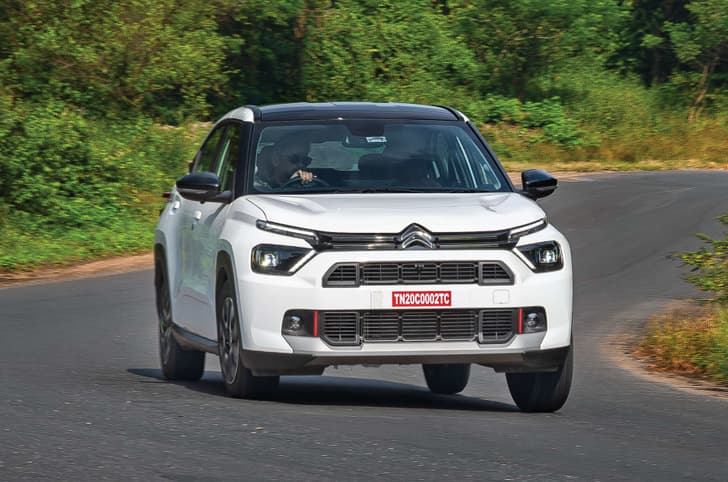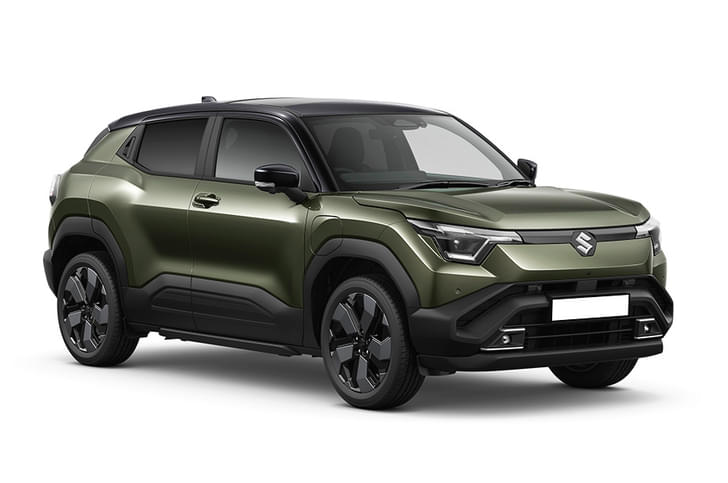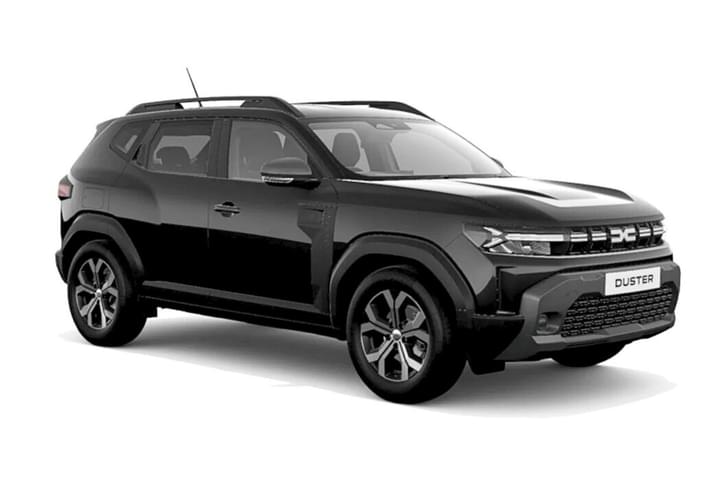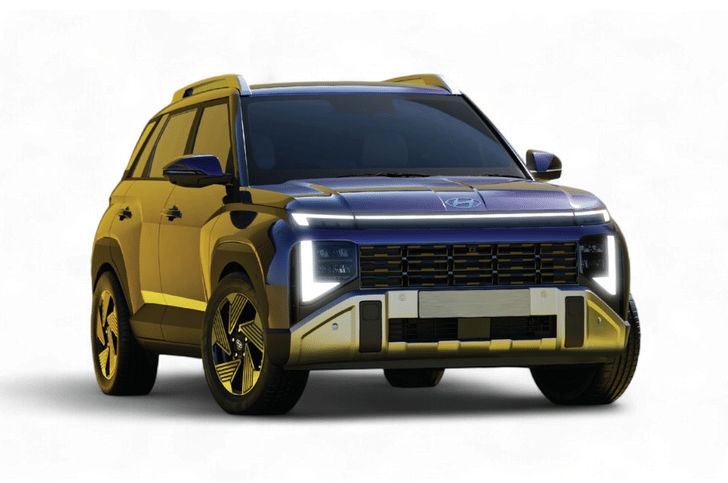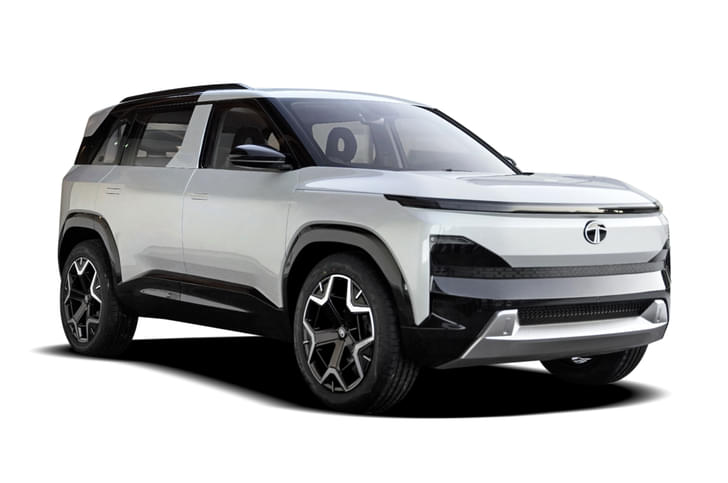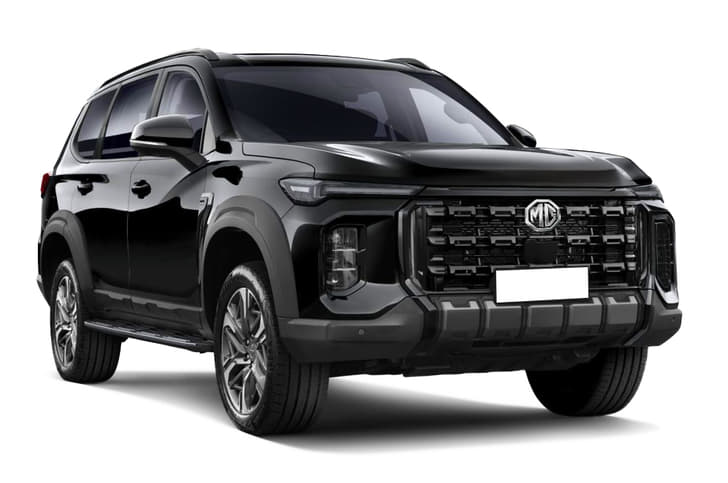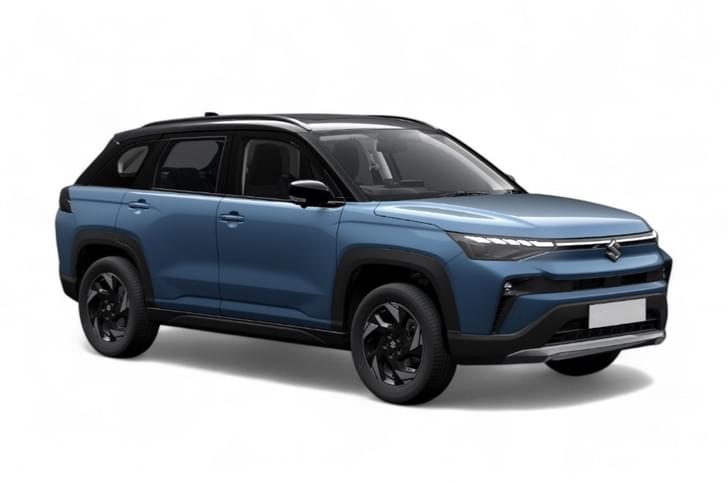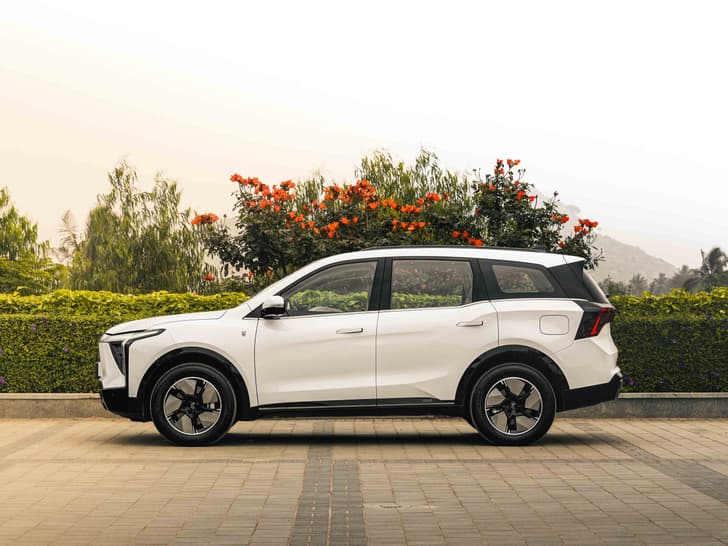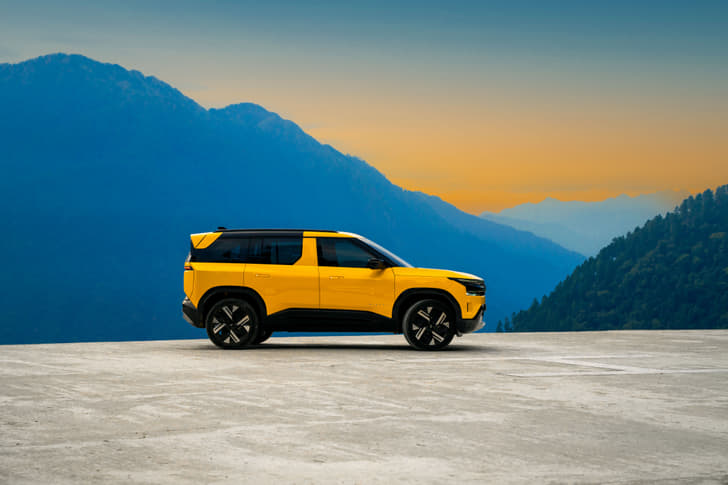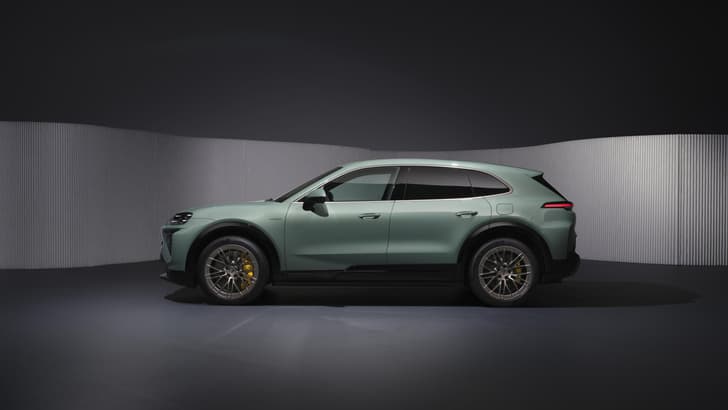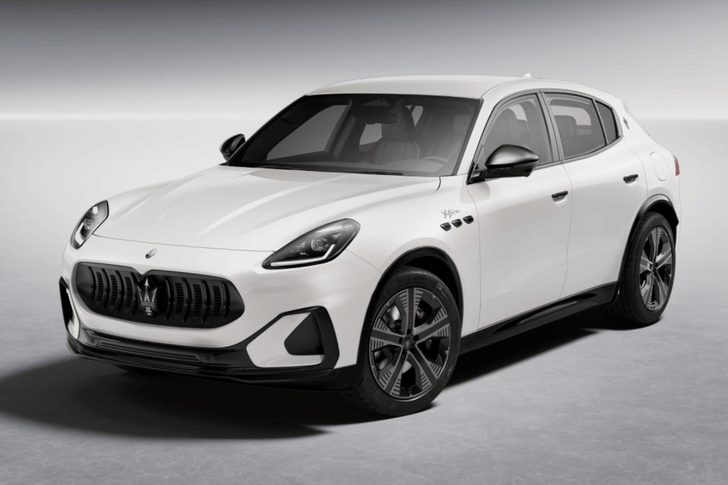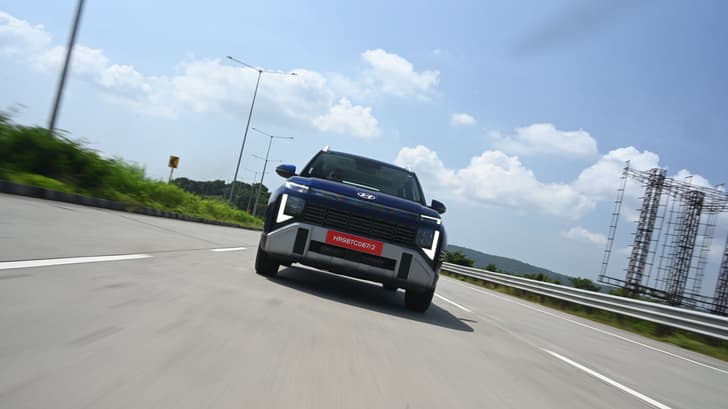Stretching the popular 3-door Thar and adding an extra pair of doors without any other changes would be the obvious and logical way to develop a 5-door Thar, now officially christened as the Mahindra Thar Roxx. It’s a quick and easy (and cheap) formula that Suzuki has used for the Jimny; the 5-door version available in India is nothing more than a stretched version of the 3-door Jimny on sale in international markets. Looking at the dismal Jimny sales in India, it’s a formula that clearly hasn’t worked.
And that’s the fundamental difference with the Thar Roxx. It isn’t just an elongated Thar, but a completely new SUV that has set new benchmarks for the company in many areas. Interestingly, Mahindra initially conceived the Roxx simply as a stretched Thar with rear doors, whilst keeping changes to a minimum to save costs. But very quickly, Mahindra threw the rule book out of the window. They saw the Roxx as an opportunity to develop an SUV that could stand on its own as a unique offering that astutely blends the hard-as-nails character and capability of the 3-door Thar, in a softer, practical, and significantly more plush package.
Mahindra Thar Roxx: platform, chassis
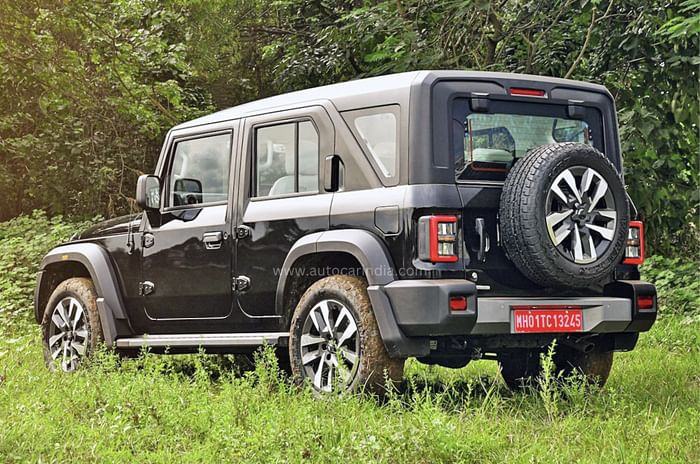
The Roxx debuts Mahindra’s fourth-generation (4G) body-on-frame chassis, and this is where the departure from the 3-door Thar, which uses the older third-gen chassis, begins. The fourth-gen chassis addresses some of the drawbacks of the 3-door Thar, like the bumpy ride, heavy steering, and off-roader dynamics that compromised it as an everyday car. The 4G chassis has a stiffer and lighter ladder frame and a new multi-link suspension system with a Watt’s linkage (to control body roll). The suspension mounting points, too, have been changed and the rear dampers have been shifted to wider points for a better ride and improved body control. Another notable change to make living with the Roxx easier is the electrical power steering, which replaces the 3-door Thar’s hydraulic unit.
The biggest change to the chassis is, of course, the dimensions. The Roxx’s 2,850mm wheelbase is a whopping 400mm longer than the shorter Thar’s to make way for a spacious cabin and, in the interest of better dynamics and to maintain proportions, the Thar’s track has also been widened considerably. The body structure of the Roxx has been strengthened and stiffened with extra welding for better safety and refinement. Carryover parts from the 3-door version include the front doors, windscreen, front fenders, and bonnet.
Mahindra Thar Roxx: design, dimensions
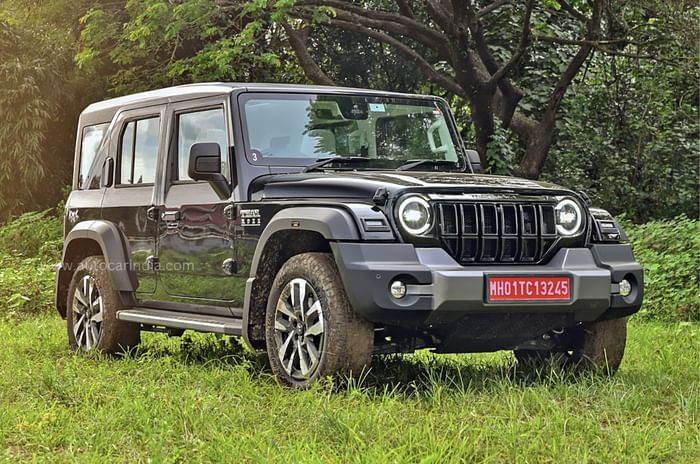
Sitting on 19-inch diamond cut alloy wheels (only available on the top AX7L variant) and massive tyres (with a humongous 789mm outer diameter), the Roxx’s proportions with the wider track and offset wheels are absolutely spot on, and it looks fit for purpose.
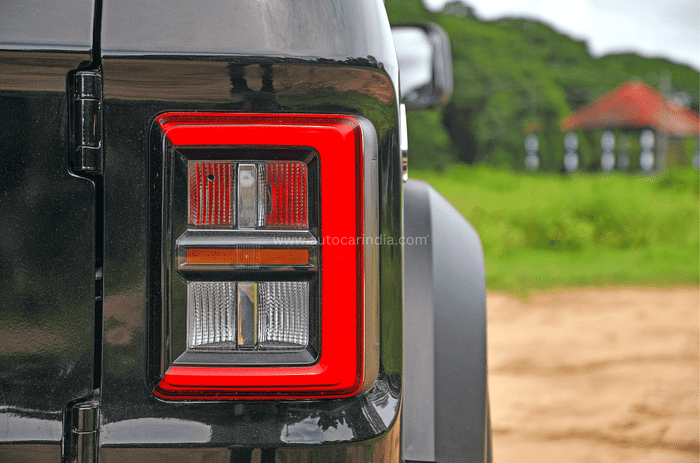
The Roxx gets a full metal roof finished neatly in black, with a giant panoramic sunroof which, according to the company, is the largest on any car yet. The slanted C-pillar, distinctive rear quarter glass, and rear door handle positioned vertically and high up on the doors are neat design details that give a dash of flair to the otherwise boxy and upright body. Other Thar elements like the bonnet clamps, exposed door hinges, tight overhangs, the side-opening tailgate with a full-sized spare on it, and the rear glass that opens independently with a hinge at the top, are all carried over.
Though Mahindra hasn’t officially declared the Roxx’s ground clearance, it stands about 235mm off the ground, which is more than the 3-door version, thanks to the larger wheels.

Mahindra Thar Roxx: interior, features
You get a sense of the Roxx’s lofty ground clearance when you have to use the grab handle and the footstep to haul yourself into the cabin. In fact, Mahindra had to lower the footstep by 14mm to make getting in and out easier!
The Roxx uses the same dashboard as the 3-door Thar, but the hard-wearing plastics have been swapped out for soft-touch materials, which lifts the premium quotient of the cabin by several notches. It also uses the same steering as the flagship XUV700 and Scorpio-N. Mahindra has spent a lot to make a cabin that feels genuinely upmarket and inviting, with a nice mix of soft-touch plastics, brushed metal, piano black finishes, and leatherette on the top variants. Fit and finish is again a big leap forward, but there is still some room for improvement. The door pad finish was a bit uneven in parts and, on some cars, so was the double stitching, which is done manually.
No doubt, the beige seats and interior trim looks very classy and enhance the look of the cabin, but one has to question the wisdom of using light-coloured trim in what at heart is still a serious off-roader. It’s like taking a walk through Chandni Chowk in a white suit during Holi celebrations. Mahindra would, however, argue that the Roxx is now a mainstream SUV and most owners won’t have the inclination to stray away from the tarmac, but even so, light fabric in our conditions is always hard to maintain.
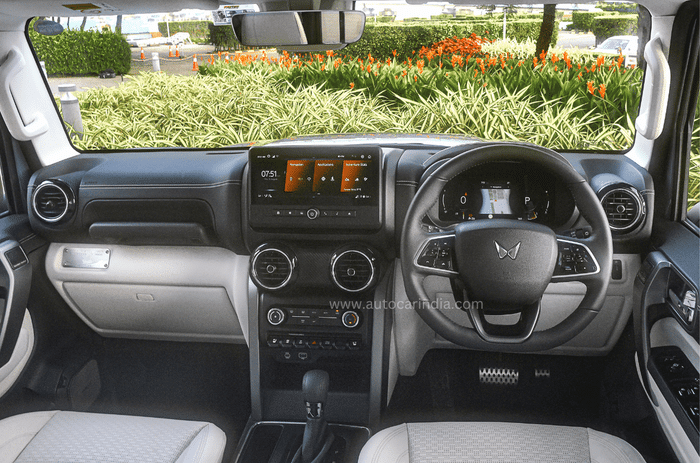
The large front seats are supportive with generous bolstering all around, though the cushioning for the lumbar or lower back area is a touch excessive. Top variants get ventilated seats, which proved to be a boon in muggy Kochi, and power adjust (for the driver only) was an added bonus to find a proper driving position. Speaking of which, the high driving position gives you a great view, and on the automatics, you have the convenience of a dead pedal, but not in the manual as the clutch pedal is placed too far to the right and leaves no room for one.
The rear seats come as a big surprise and you know that the extra long wheelbase has been put to good use here. There’s ample legroom and thigh support to keep you comfortable on long road trips and the adjustable recline of the backrest lets you relax even more. However, like with the front seats, you can feel the excessive lower back cushioning. The flat floor and width of the cabin make travelling three abreast more convenient and comfortable (if you can live with the folded armrest) compared to other SUVs, and the overall space on offer makes the Roxx a particularly good family car. Luggage space, which is a sore point in the 3-door Thar, is surprisingly good in the Roxx. The smartly designed luggage area can neatly stack several large bags.

There’s no shortage of equipment either. The Roxx gets a bigger 10.25-inch screen and the XUV 3XO’s digital instrument cluster, which is also a 10.25-inch unit. An electronic parking brake, 360-degree camera, ambient lighting, Level 2 ADAS, wireless charging, a blind spot monitoring system, and automatic climate control are some of the features that Roxx has over the more basic 3-door model.
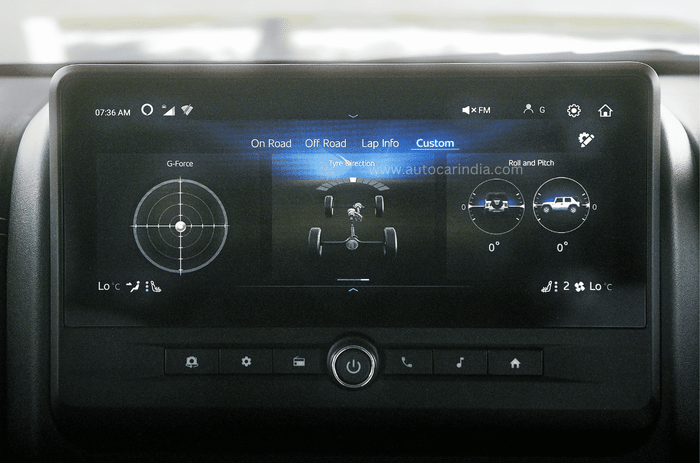
However, the digital instrument display is overloaded with features and is cumbersome to use. Toggling through the functions is slow, and you can only scroll one way and can’t go back to the previous function, which isn’t convenient at all.
Mahindra Thar Roxx: powertrain, performance
There’s no dearth of powertrain options for the Roxx. Customers can choose from a combination of 2.0-litre direct-injection turbo-petrol and 2.2-litre diesel, both of which come with automatic or manual transmissions; it's only the diesel that gets 4x4 options. The engines have varying power outputs with the petrol-automatic and diesel 4x4s getting more powerful version of their respective engines.
The petrol-AT is the most powerful variant in the Roxx range and develops 177hp, a good 27hp more than the petrol Thar 3-door. As always, Mahindra has nailed it as far as engines go. Performance is strong and linear and despite its portly weight, the petrol Roxx gathers speed briskly and smoothly. The petrol-AT comes with two drive modes, Zip and Zoom, but you won’t find the need to use the more potent Zoom mode.

There’s no shortage of power, and overtaking on some of the narrow roads in and around Kochi was effortless. If anything, the step-off or start from the standstill is a bit aggressive in Zoom mood and a mere tap of the accelerator gets the big Roxx to respond instantly. The 6-speed Aisin torque converter, which is again the gold standard for automatics in this category, has been calibrated to lock up early, providing a sharper and more responsive driving experience. The 6-speed 'box is smooth offering near-seamless shifts and though paddle shifters are missing, you can flick to manual mode via the lever. What’s nice is that in manual mode, this automatic allows you to hold max revs in each gear, so you can squeeze the most out of this engine.
The 2.2-litre mHawk diesel is typically very impressive and hard to fault. It has a broad torque spread and pulls cleanly from low revs all the way to its 4,700 rpm redline (if you hold it in manual mode). Developing 172hp and 370Nm of torque, it has enough grunt for off-roading duties and effortless highway cruising. In fact, the stronger mid-range and sheer low-down pulling power make the diesel Roxx a better option than the petrol, and it's much easier on the pocket too. Mahindra’s diesel engines are the gold standard for refinement in their category, and the Roxx is no exception. At low revs, you can’t tell if you are in a petrol or diesel, and it's only when you rev it hard that the diesel drone becomes evident.
In fact, refinement is something the Roxx excels in with fantastic sound insulation to keep out unwanted noise. Suspension, engine and road noise are superbly suppressed, and even the aircon blower is less noisy than in other Mahindras. It’s only at high speeds that a bit of wind noise creeps into the cabin.
Another shocker is how good the ride and handling of the Roxx are, which is not something you expect from a heavy body-on-frame vehicle. Both the Thar 3-door and Scorpio-N have a lot of body movement on an uneven road, but the Roxx feels much more settled. The steering, too, is the best on a Mahindra yet, and the calibration of this latest EPS unit does away with the vagueness around the straight-ahead position experienced in other Mahindras. The steering is light and progressive, and even at triple-digit speeds, it gives you enough confidence. Yes, there is a fair bit of body roll around corners (impossible to eliminate in such a tall and heavy SUV) and the front moves around a bit at high speeds, but you always have a good sense of control, which makes the Roxx a happy cruiser.
You know the value of a tough, body-on-frame SUV when you go off-road, or on bad roads. A small foray into marshy fields to find a good location for this photo shoot highlighted how capable the Roxx is. It clawed out of a boggy patch with ease and even obliged Kuldeep, our photographer, with some jump shots. That’s something I wouldn’t have dared try in a monocoque SUV.
The massive wheels and huge ground clearance lets the Roxx eat potholes for breakfast and if there’s one thing that gives it a huge edge over any soft-roader, it is the way it can trample any road without a worry.
The downside of the body-on-frame is a lumpy ride at low speeds and you can feel the road (and the unsprung mass at play) especially in the back seat, which is just above the live rear axle. You can feel the road too but the ride is not jarring or harsh as the big tyres nicely round-off sharp edges.
Overall, the Roxx’s suspension set-up is on the softer side to give that additional layer of comfort in urban driving, which is where most of its customers will mainly use it.
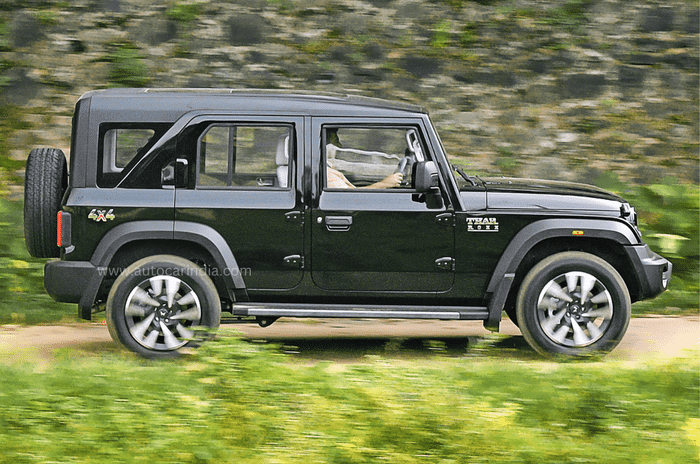
Mahindra Thar Roxx: price, verdict
Launching products at very aggressive prices is the Mahindra way, and the Roxx is no exception. The base MX1 variant is priced at an incredible Rs 12.99 lakh, whilst the range-topping AX7L version’s price goes up to just Rs 20.49 lakh. Prices are yet to be announced for the 4x4 variants, which, in keeping with Mahindra’s variant strategy, is likely to be a substantial jump over their respective 4x2 trims.

All prices, ex-showroom, India






